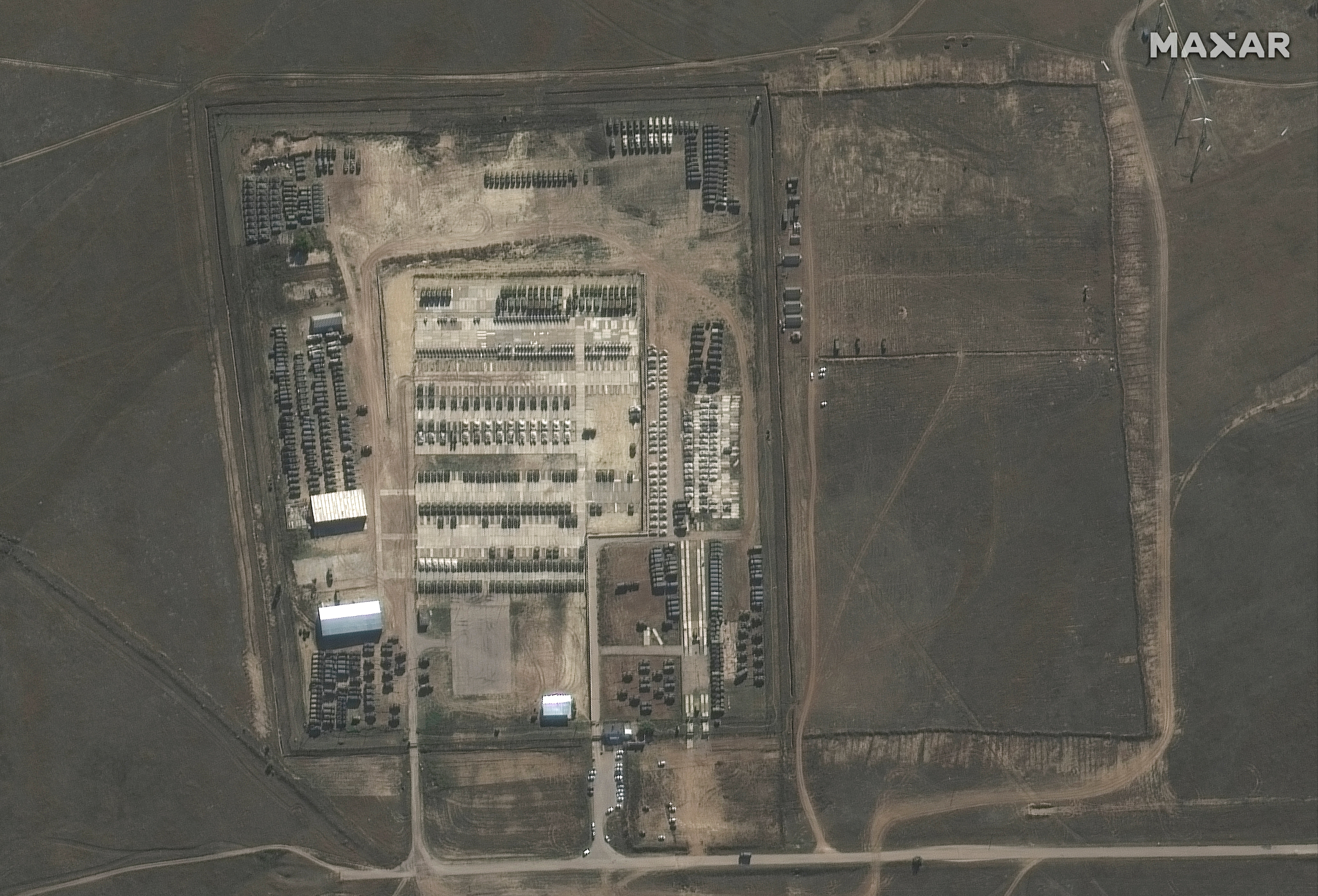EU and Nato ‘believe Russia is preparing to invade Ukraine’
Tens of thousands of Russian soldiers known to be massing on border

Your support helps us to tell the story
From reproductive rights to climate change to Big Tech, The Independent is on the ground when the story is developing. Whether it's investigating the financials of Elon Musk's pro-Trump PAC or producing our latest documentary, 'The A Word', which shines a light on the American women fighting for reproductive rights, we know how important it is to parse out the facts from the messaging.
At such a critical moment in US history, we need reporters on the ground. Your donation allows us to keep sending journalists to speak to both sides of the story.
The Independent is trusted by Americans across the entire political spectrum. And unlike many other quality news outlets, we choose not to lock Americans out of our reporting and analysis with paywalls. We believe quality journalism should be available to everyone, paid for by those who can afford it.
Your support makes all the difference.Intelligence shared by the United States has reportedly convinced its EU and Nato allies that Russia may intend to invade Ukraine shortly.
Russian forces have been massing on the border with Ukraine in recent weeks in large numbers, prompting concerns among some in the west that Vladimir Putin will soon authorise an invasion.
Previous Russian troop movements near the Ukrainian border in the past have not resulted in conflict.
However, after a concerted diplomatic effort involving unusually detailed sharing of US intelligence, most of America’s allies in Europe are now persuaded by the Biden administration’s assessment.
The US hopes it could build a consensus around threats of devastating economic sanctions against Russia which would be enough to deter any military action against its neighbour, unnamed officials told the Financial Times.
“Many allies were not convinced that serious things were happening,” an EU official told the newspaper. “We were surprised about this [intelligence] gap – how and why the US were seeing things that we were not seeing.
“If I have to compare soundbites from before this info and then [at the Nato meeting] in Riga, there was a big shift towards the US version of things.”
Joe Biden is due to hold a virtual summit with Mr Putin on Tuesday where he will "reaffirm the United States’ support for the sovereignty and territorial integrity of Ukraine”, his press secretary Jen Psaki said.
The American president also said he had drawn up a package of potential sanctions, should Russia go ahead with an invasion.
"What I am doing is putting together what I believe to be, will be, the most comprehensive and meaningful set of initiatives to make it very, very difficult for Mr Putin to go ahead and do what people are worried he may do," Mr Biden said last week.
Russian troops invaded Georgia briefly in 2008 to prevent Georgian forces from controlling separatist pro-Russian enclaves, and did similar in Ukraine in 2014 – as well as fully annexing the Crimean peninsula – following the pro-European protest movement which toppled the regime of Ukraine’s president Viktor Yanukovych.
In recent years, Russia has ramped up its nationalist rhetoric, portraying regions of Ukraine as a natural and historic part of a supposed Greater Russia and vehemently condemning any moves by Ukraine towards the west.
The US has said its intelligence suggests tens of thousands of Russian soldiers – about half the 175,000 troops which would be involved in an invasion – have already been moved close to the border. Any moves to cross the border into Ukraine could come as soon as January.
Mr Putin reportedly hopes to persuade Mr Biden to promise not to admit Ukraine into the Nato alliance, but the US president has told reporters he will not “accept anyone’s red line”, while Nato’s secretary-general Jens Stoltenberg said last week Russia could have no say in decisions about expanding the alliance.
Join our commenting forum
Join thought-provoking conversations, follow other Independent readers and see their replies
Comments